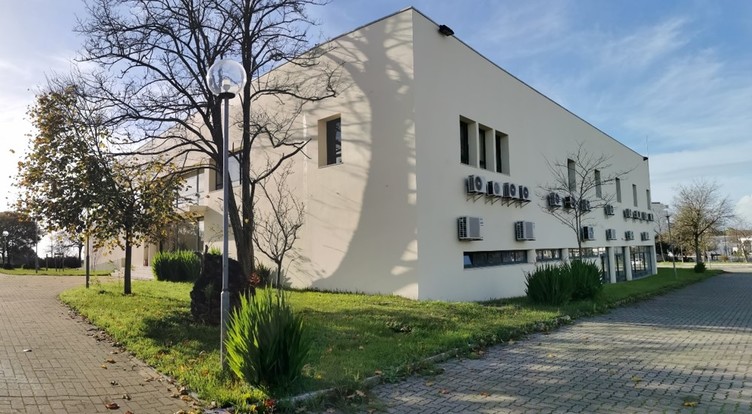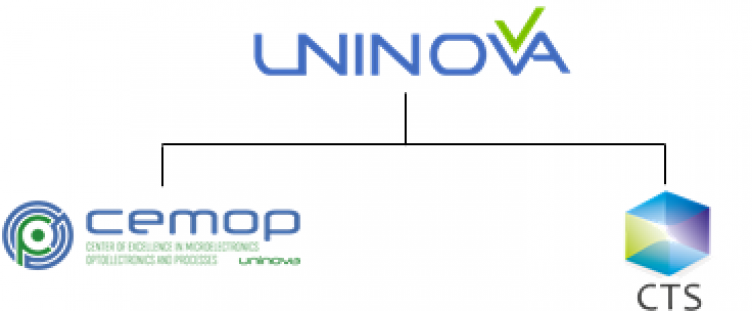Organisation
Visually-hidden
Instituto de Desenvolvimento de Novas Tecnologias (UNINOVA) is a multidisciplinary, independent, and non-profit research institute employing around 180 persons, located in the metropolitan area of Lisbon. It was formed in 1986 by the Faculty of Sciences and Technology of the Nova University of Lisbon (FCT-UNL - www.fct.unl.pt), a group of industrial associations, a financial holding, and up to 30 companies. It is an active partner of Madan Parque (www.madanparque.pt), a business facilitator and accelerator, incubating Micro and SME’s through several layers of support to entrepreneurial activity.
The main aim of UNINOVA is to pursue excellence in scientific research, technical development, advanced training, and education. By working closely with industry and universities, technological innovations are transferred into profitable business concepts and, existing products further developed to match new industrial requirements. Due to its tight connection with the University and Madan Parque, UNINOVA has, since its foundation, hosted and supported the development several Ph.D. thesis, as well as the creation of several successful spin-offs.
The institute is strongly committed to Europe and to Lisbon Strategy being involved in many activities that support/enable the developments and actions towards the knowledge economy. It has managed and participated in many national and international research programmes (ESPRIT, BRITE, IMS, IST, ICT, NMP, INNOVA etc.) with experience in RTD in industrial systems interoperability, future internet enterprise systems, reconfigurable manufacturing systems, intelligent control solutions, e-learning and e-training activities, and standards-based activities (e.g. ISO TC184/SC4). UNINOVA also coordinated the IMS SMART-fm framework creating a community (funStep community) with more than 700 members, and also supported the launch of several spin-off companies using research results.

The impact and results achieved through these activities are both on the academic and scientific community, with papers published in chapters of books, international scientific journals, and conferences. These results are also in use by industrial research projects addressing interoperability topics and have been a source for further scientific and technical innovations towards seamlessly interoperable environments. These include standardization communities. The work developed resulted in several international awards.
UNINOVA hosts two research units: CEMOP—Centre of Excellence in Microelectronics Optoelectronics and Processes; and CTS—Centre of Technology and Systems.

CEMOP – Centre of Excellence in Microelectronics Optoelectronics and Processes
The Center (CEMOP) is specially equipped for Research & Development, service providing and training activities in five main areas:
- Microelectronic and optoelectronic devices' conception/production technologies and processes
- Tribologic and optic coatings
- System project and conception
- Material and device characterization
- Device simulation/modelling
In pursuit of its objectives, CEMOP takes part in several research projects, both fundamental and applied, involving universities, institutes and companies, both National and International. CEMOP's privileged partner for R&D related activities is the Center for Materials' Research of the FCTUNL (CENIMAT), with whom it cooperates on a regular basis.
CTS – Centre of Technologies and Systems
The Centre of Technology and Systems (CTS) addresses engineering systems with a cyber-physical dimension, including modelling and design, development of support technologies and methods, proposition of adequate governance models, application and assessment.
CTS aims to develop theoretical and applied research and encourages technology transfer mostly supported by spin offs and deep involvement in international R&D projects.
CTS develops its activities in major domains of Electrical, Electronics and Computer Engineering, addressing engineered systems with a cyber-physical dimension and their supporting technologies. It is guided by an interdisciplinary aim, along 3 development axes:
- Electronic and Embedded Systems
- Energy and Industrial Systems.
- Computer Engineering Systems.
List of subsidies and public benefits of the Institute to natural or legal persons from the private, cooperative and social sectors and public entities outside the scope of public administrations within the European System of National and Regional Accounts (articles 4 and 5 of Law no. 64/2013, of 27 August).
Public Procurement in the scope od Decree-Law n.º 60/2018, 03/08
